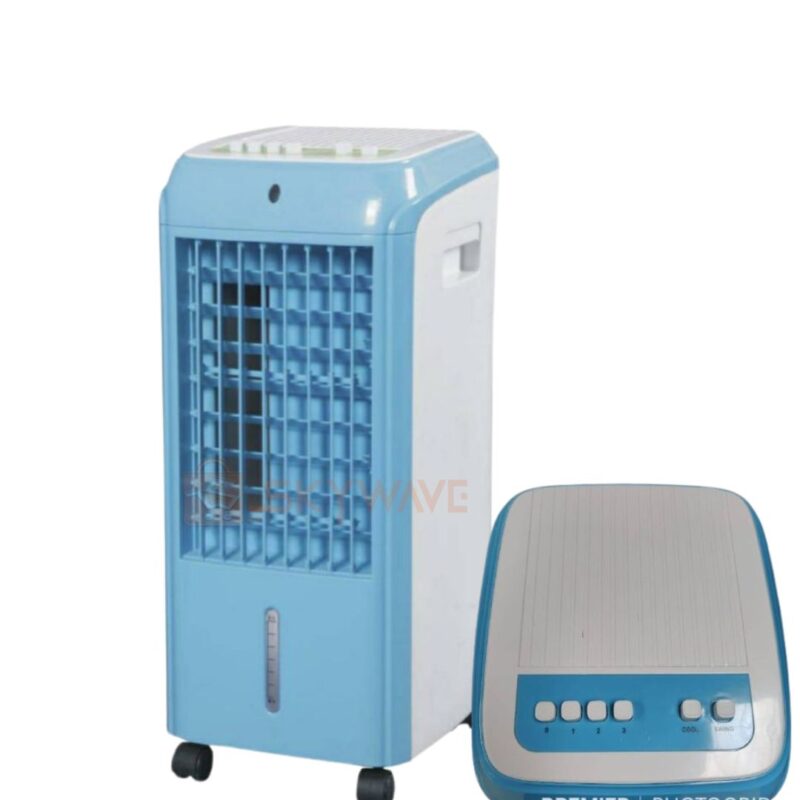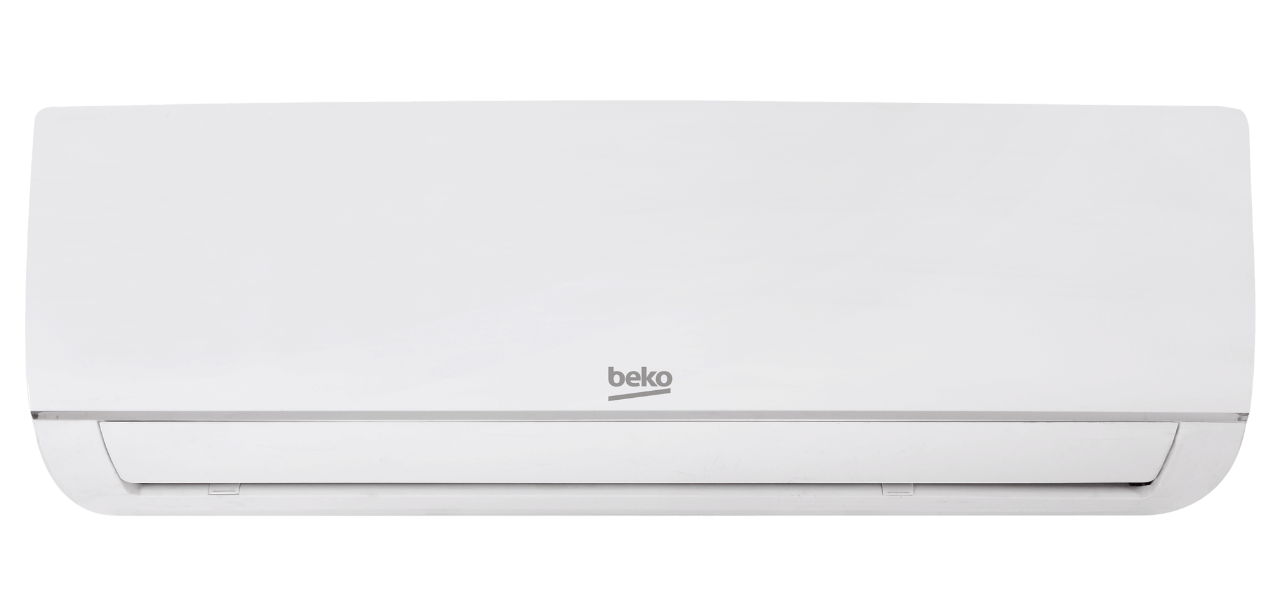Air Coolers and Air Conditioners: The Ultimate Guide
Introduction
Cooling appliances are essential for improving indoor comfort, especially in hot regions such as Mombasa, Garissa, Kisumu, etc. The two common types in Kenya are air coolers and air conditioners, each employing unique methods to provide cooling. In this guide, you will be able to familiarize yourself with the basic functions and characteristics of these appliances which can assist in making well-informed decisions about their usage. Let’s get started!
Air Coolers and Air Conditioners
1. Air coolers

Air coolers, also known as evaporative coolers, utilize the natural process of water evaporation to reduce air temperature. The Premier 4-8 Liters Air Cooler exemplifies this category with its efficient design. By drawing warm air through water-saturated pads, the air cooler facilitates the evaporation process, where heat is absorbed by water, consequently cooling the air. This cooled air is then circulated throughout the room by a fan, providing a refreshing atmosphere. Notably, air coolers are most effective in dry climates, as higher humidity levels can impede the evaporation process.
Benefits of Using an Air Cooler
1. Saves energy: Air coolers use less electricity than air conditioners, leading to lower energy bills.
2. Cost-effective: Air coolers are cheaper to buy and maintain than air conditioners.
3. Easy to install: Air coolers are simple to set up without the need for professional help.
4. Environmentally friendly: Air coolers use water instead of harmful refrigerants, reducing environmental impact.
5. Portable: Air coolers are lightweight and easy to move around, providing flexibility in cooling different areas.
2. Air conditioners

On the other hand, air conditioners operate based on the refrigeration cycle, which involves a refrigerant to absorb and dissipate heat. The TLAC Portable Air Conditioner 12000BTU is an illustrative example of this technology. Air conditioners draw in warm indoor air and pass it over evaporator coils filled with refrigerant. The refrigerant absorbs the heat and transitions from a liquid to a gaseous state. This cooled air is then expelled back into the room, while the heat-laden refrigerant is compressed and moved to condenser coils outside the room, where it releases the absorbed heat. This cycle continues, maintaining a desired indoor temperature irrespective of external humidity levels.
Benefits of Using an Air Conditioner
1. Keeps You Cool: They cool the air to a comfortable temperature, making your home or workplace more pleasant, especially in the summer.
2. Controls Humidity: Air conditioners improve comfort, prevent mold, and dampness, and enhance air quality by removing excess moisture from the air in damp areas.
3. Keeps Temperature Stable: Air conditioners regulate indoor temperature for consistent comfort by adjusting to maintain a set temperature, preventing sudden changes.
4. Improves Air Quality: New air conditioners have filters that trap dust, pollen, and particles, improving air quality for those with allergies or respiratory issues.
5. Many Uses: Air conditioners, available in various types and sizes like split air conditioners or portable units, offer cooling solutions for different settings such as homes, offices, and more.
6. Saves Energy: New air conditioners with high SEER ratings are more energy-efficient, reducing utility bills and benefiting the environment.
Both air coolers and air conditioners present unique advantages and drawbacks, making them suitable for different environments and preferences. As we delve into a detailed comparison in subsequent sections, it is essential to recognize these foundational operational principles and their implications on user experience and energy consumption.
Disadvantages of Using Air coolers and Air conditioners
Air Cooler:
1. Limited Cooling in Humid Climates: Air coolers depend on ambient humidity for efficiency. In regions with high humidity, they perform poorly by adding moisture to the air, worsening discomfort.
2. Frequent Water Refills: Air coolers operate on evaporation, needing regular water refills. This can be inconvenient, especially in water-scarce areas. Failure to refill in time can decrease efficiency.
3. Less Precise Temperature Control: Air coolers offer limited indoor temperature control without thermostats, leading to variability in climate.
Air Conditioner:
1. Higher Energy Consumption: Air conditioners consume a lot of energy, resulting in high electricity bills. Continuous operation for climate control requires significant power.
2. High Initial Cost: Buying and installing an air conditioner is more expensive than an air cooler. This includes the unit cost and installation fees, which can be a financial burden.
3. Environmental Impact: Air conditioners use refrigerants that harm the environment by emitting greenhouse gases and depleting the ozone layer. Their high energy use increases carbon footprints, making them less eco-friendly.
Air Cooler and Air Conditioner: A Comparison
Below, we provide a detailed comparison between air coolers and air conditioners to aid in informed decision-making.
| Aspect | Air Cooler | Air Conditioner |
|---|---|---|
| Cost | Lower initial investment | Higher purchase and installation costs |
| Energy Efficiency | Consumes less electricity | Higher energy consumption |
| Cooling Capacity | Moderate, cools by water evaporation | High, uses refrigerants for cooling |
| Humidity Control | Increases indoor humidity | Dehumidifies the air |
What to Consider When Choosing Air Coolers and Air Conditioners
Now that you know both the advantages and disadvantages of air coolers and air conditioners, Knowing what to choose can still be challenging. Here we provide some of the factors to consider that will help you make an informed decision.
1. Location
For instance, if you live in an area with high temperatures but low humidity, an air cooler could be a more cost-effective and energy-efficient choice. They are ideal for dry climates, and their lower electricity usage makes them an appealing option for those looking to reduce energy costs. Conversely, in regions with high humidity levels, air conditioners may offer more comfort by also acting as dehumidifiers. While they require a higher initial investment and consume more electricity, their superior cooling capacity can ensure a consistently comfortable indoor environment. Their ability to quickly cool large spaces makes them indispensable in hot and humid climates.
2. Room size
Room size is another vital consideration. Air coolers are well-suited for small to medium-sized rooms as their effectiveness diminishes over larger spaces. Air conditioners, on the other hand, are available in various capacities and can be tailored to suit different room sizes, making them versatile for diverse living conditions.
3. Budget
Budget constraints also play a crucial role. While air conditioners provide robust performance, their higher costs might be prohibitive for some. In such scenarios, an air cooler offers a practical alternative, balancing cost and performance effectively.
4. Energy Efficiency
Air coolers are cost-effective with lower power consumption and maintenance costs, ideal for dry climates. Air conditioners offer precise temperature control, dehumidification, and air filtration, better for humid areas.
5. Portability and Installation
Air coolers are typically more portable and easier to install than air conditioners. They usually come in compact designs and can be moved from one room to another. Air conditioners, especially split units, require professional installation and are fixed in one place. If you need a flexible, mobile cooling solution, an air cooler might be your best bet.
6. Maintenance Requirements
Lastly maintenance, this is another crucial aspect. Air coolers generally have simpler maintenance requirements, like regularly cleaning the water tank and cooling pads. Air conditioners, however, necessitate professional servicing to clean filters, check refrigerant levels, and ensure efficient performance. Your choice will depend on how much time and effort you’re willing to invest in upkeep.
Conclusion
Both air coolers and air conditioners have their pros and cons, as we have discussed in the article. Air coolers are eco-friendly and cost-effective, great for dry climates. Air conditioners are powerful and can keep a steady temperature, perfect for humid or very hot places. Think about your needs and where you liv. If you’re in a dry area and want to save money, go for an air cooler. But if you need strong cooling and don’t mind spending more, an air conditioner is the way to go. Share your thoughts below to help others decide too!



